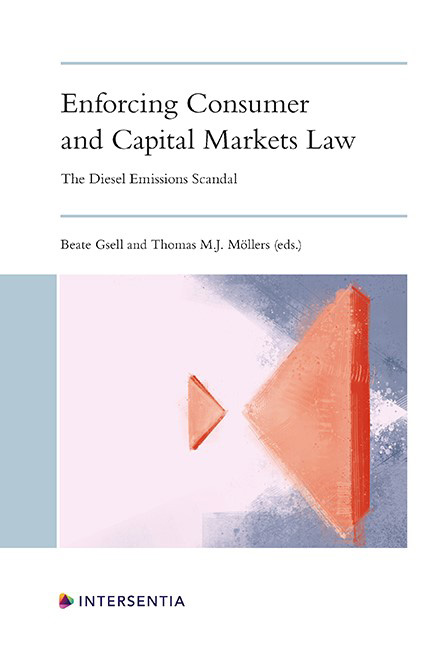Book contents
- Frontmatter
- Acknowledgement
- Contents
- List of Cases
- List of Abbreviations
- List of Contributors
- PART I INTRODUCTION
- PART II EUROPE
- PART II BEYOND EUROPE
- PART III THE SUPRANATIONAL PERSPECTIVE
- PART IV LEGAL PRACTICE PERSPECTIVE
- PART V INTRADISCIPLINARY ANALYSIS AND REFORM RECOMMENDATIONS
- Key Source Bibliography
- Index
- About the Editors
Enforcing Capital Markets Law in Austria
Published online by Cambridge University Press: 22 December 2020
- Frontmatter
- Acknowledgement
- Contents
- List of Cases
- List of Abbreviations
- List of Contributors
- PART I INTRODUCTION
- PART II EUROPE
- PART II BEYOND EUROPE
- PART III THE SUPRANATIONAL PERSPECTIVE
- PART IV LEGAL PRACTICE PERSPECTIVE
- PART V INTRADISCIPLINARY ANALYSIS AND REFORM RECOMMENDATIONS
- Key Source Bibliography
- Index
- About the Editors
Summary
INTRODUCTION
While it would be fascinating to discuss some fundamental questions of capital market law such as fraud-on-the-market theory or the distinction between transaction causation and loss causation from the perspective of Austrian law, the aim of this chapter is more modest. Its purpose is simply to analyse remedies available in Austria for violations of capital market law in Case 2 provided by the editors. Obviously, capital market law is an ideal example for a discussion of collective redress since violations of the law in this area typically affect numerous investors. While this paper will focus on the facts of hypo 2, this chapter will also briefly discuss some other aspects of violations of capital market law not covered by the hypo.
This chapter will first provide a brief overview of substantive Austrian private law (Section II.). Then, an overview of procedural devices available under Austrian civil procedure for collective redress will be provided (Section III.). Subsequently, the chapter moves on to discuss public enforcement both from a perspective of administrative law and criminal law (Section IV). The chapter (Section V) will then discuss a number of general questions such as parallel proceedings, res judicata, the standard of proof, the statute of limitations and, last, but not least, costs. Some facts and figures will be presented in the chapter (Section VI). Then it will briefly address the discussion about a reform, in particular the various suggestions for the introduction of group proceedings (Section VII). The final chapter (Section VIII) will try to draw some conclusions.
PRIVATE LAW
INTRODUCTION
Claims for damages can be based on a violation of the respective provisions of capital market law, i.e. the duty to make an ad hoc announcement (article 16 of the MAR, §155 of the BörseG 2018) and the prohibition against insider dealings (§§154, 163 of the BörseG). While the losses incurred by investors obviously are pure economic losses (which generally can be recovered only in special circumstances), the Austrian Supreme Court has held that the respective provisions of the Stock Exchange Act (BörseG) are ‘protective statutes’ (Schutzgesetze) designed to protect also individual investors from financial losses.
- Type
- Chapter
- Information
- Enforcing Consumer and Capital Markets LawThe Diesel Emissions Scandal, pp. 29 - 50Publisher: IntersentiaPrint publication year: 2020



